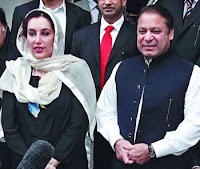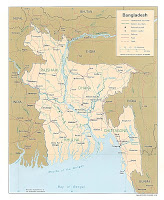 As one of the fastest growing economies in the world, India has a growing appetite for energy: electricity, oil, etc. This post is specifically about oil.
As one of the fastest growing economies in the world, India has a growing appetite for energy: electricity, oil, etc. This post is specifically about oil.While it has a huge land mass, India does not have a long history of oil exploration. Now that the country has realized its growing appetite, the government has started to look at private companies in the hope that they will help it find new sources of oil. Unfortunately, this looks like its running counter to the country's tendency to fight private investment, especially foreign direct investment (FDI).
One example of this conflict is the Cairn India oil project. Funded by the IFC ($150 million), this project has run into problems because the company and the Indian government cannot agree on how the oil, which will be pulled from the Rajasthan desert, will be delivered to the market.
Cairn, who wants to build an $800 million pipeline to transport the oil from the site to the coast, has promised its investors and lenders an output of 150,000 barrels a day. However, the government, which has ultimate responsibility for delivering the oil from the field to the market, wants to build a "mini-refinery" on the site, arguing that this would greatly reduce the shipping cost. The problem is that would halve the production and thereby reduce profits. Not only that, a reduction in output could also violate its agreement with the government.
The other interesting fact is that the government is considering a plan by "steel baron Lakshmi Mittal to buy a 49 per cent stake in the Bhatinda refinery, which is under construction ... [and would] ... have a 180,000 barrel-a-day capacity ... [and] ... being built in northern Punjab state by state refiner Hindustan Petroleum Corp."
Could there be conflict of interest there and how would this impact the attitude of other companies that want to invest in the country?





